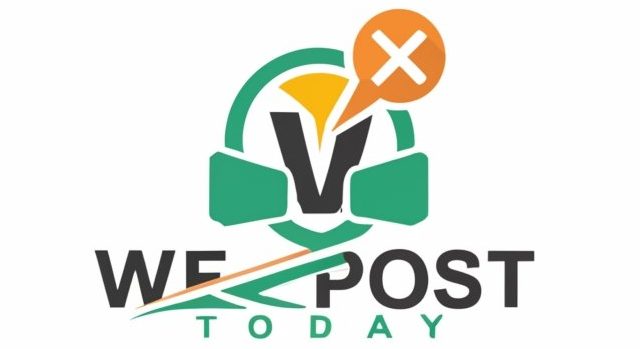Let’s first grasp the significance of efficient SEO consulting services before delving into the intricacies of an e-commerce SEO checklist. The art of enhancing your website to augment its prominence on search engine result pages is dubbed SEO, or search engine optimization. You yearn for your website to shine in the search results when prospective buyers seek commodities or amenities associated with your digital emporium. You can capitalize on avant-garde methodologies and ensure that your website is fine-tuned to ascend the ranks on search engines like Google, Bing, and Yahoo by investing in effective SEO consulting services.
E-commerce SEO Checklist to Elevate Your Online Store
A successful online presence is essential for any e-commerce shop in the modern digital era. Effective SEO consulting services must be put in place in order to make sure that your online store stands out from the swarm of millions of rival websites. A thorough SEO check list can help you optimize your website and increase organic traffic, which will raise exposure, conversion rates, and ultimately revenue. To assist you raise your online business and improve its performance, we’ll look at the essential components of an e-commerce SEO checklist in this post.
Technical SEO Checklist:
Technical SEO is the first step in developing an effective SEO Consulting Services. This entails improving your website’s technical features so that search engines can efficiently crawl, index, and interpret your material. Consider using the following checklist to make sure your online business is stable technically:
- Design for mobile devices: Since Google gives preference to mobile-friendly websites, make sure your website is fully responsive and mobile-friendly.
- Fast Loading Speed: To enhance user experience and lower bounce rates, optimize the speed at which your website loads. Utilize caching methods, decrease code, and compress pictures.
- XML Sitemap: To make it easier for search engines to crawl and index your website, create and submit an XML sitemap.
- Robots.txt: Ensure that the robots.txt file on your website is set up correctly to direct search engine crawlers and avoid indexing of unwanted pages.
SEO Keywords Checklist:
By connecting your e-commerce store with the correct audience, keywords are essential to SEO. Consider the following checklist when optimizing your website for relevant keywords:
- Keyword Research: Conduct in-depth keyword research to find high-volume, little-to-no-competition keywords that are related to your goods or services. To assist with this process, use tools for keyword research or hire effective SEO consulting services.
- Long tail Keywords: Use long-tail keywords in your content to target more precise search queries and draw in qualified traffic.
- Title Tags and Meta Descriptions: To increase click-through rates and relevancy in search results, optimize your title tags and meta descriptions with focused keywords.
On-Page checklist:
When a web page is optimized for on-page SEO, it improves its search engine performance and attracts more organic visitors. Consider the following checklist when optimizing the on-page elements of your online store:
- Unique Product Descriptions: Create distinctive, keyword-rich product descriptions for each item to avoid duplicate content problems and raise search engine visibility.
- URL Structure: For better user experience and search engine indexing, make sure your URLs are clear, descriptive, and include pertinent keywords. To know the optimum structure of a URL follow effective SEO Consulting Services.
- Image optimization: To improve accessibility and search engine indexing, optimize product photographs by reducing their file sizes without sacrificing quality.
Off-Page Checklist:
Off-page SEO entails actions that are taken outside of your website to raise its authority and reputation there. To strengthen your e-commerce store’s off-page SEO efforts, take a look at the following checklist:
- Link Building: Focus on gaining high-quality backlinks from reliable websites via guest posting, working with influencers, or forming content partnerships.
- Social Media Engagement: Build an active presence on the right social media sites to enhance brand recognition and get more customers to your online business.
- Online Reviews and Testimonials: Encourage happy customers to submit reviews and testimonials online because they not only increase confidence but also have an impact on search engine rankings.
Content Checklist:
Any effective SEO Consulting Services for e-commerce is very essential. You can engage your audience, develop thought leadership, and raise your search engine rankings by producing high-quality, pertinent content. For your content for e-commerce, take into account the following checklist:
- Product Descriptions: Outline the benefits and distinctive selling factors of your items in comprehensive and persuasive product descriptions.
- Blogging: To educate your audience and draw in organic visitors, produce blog posts on a regular basis about your sector, goods, or services.
- Engage Customers: Encourage customers to share their stories via reviews, recommendations, and social media posts to develop useful user-generated content.
Conclusion:
To improve your online store and increase organic traffic, it’s essential to implement an efficient e-commerce SEO checklist. You may increase your website’s exposure and draw in new visitors by optimizing technical features, selecting relevant keyword phrases, improving on-page and off-page SEO, and producing high-quality content. To maintain your e-commerce site in the lead, keep up with the most recent SEO trends and look for effective SEO consulting services. Your online store can flourish and experience long-term success in the cutthroat e-commerce environment with a well implemented SEO strategy.



